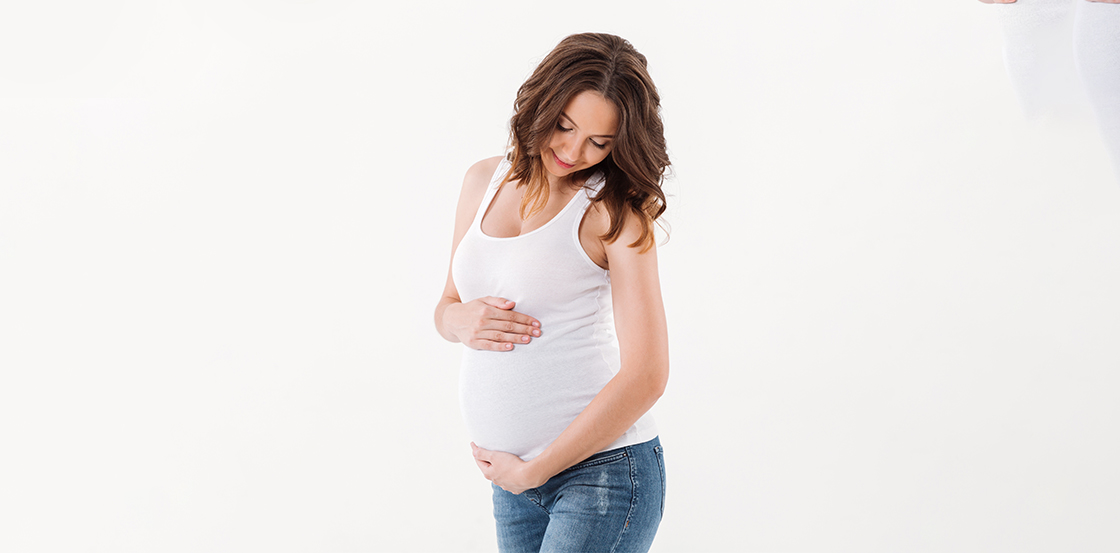Post link copied to clipboard!

Adenomyosis is a medical condition that has garnered increasing attention due to its potential impact on fertility and pregnancy. In this comprehensive blog, let’s learn about adenomyosis and its association with fertility, discussing its symptoms, treatment options, and available resources. If you’re considering pregnancy or seeking more information about this condition, read on to gain a deeper understanding.
Adenomyosis, a condition where the tissue lining the uterus begins to grow into the muscular wall of the uterus, has been linked to potential fertility challenges and complications during pregnancy. It can result in an enlarged uterus, painful menstrual cycles, and in some cases, fertility issues. While adenomyosis shares some similarities with endometriosis, it is pivotal to distinguish between the two.
The relationship between adenomyosis and fertility is complex and not yet fully understood. Some individuals with adenomyosis may experience no difficulty conceiving, while others might face challenges. Adenomyosis can lead to inflammation within the uterus, potentially affecting the ability of a fertilised egg to implant securely.
Pregnancy with adenomyosis is possible. But it may involve careful monitoring and management. Adenomyosis can increase the risk of certain complications during pregnancy, such as preterm birth and cesarean delivery. However, many individuals with adenomyosis have successful pregnancies with proper medical care.
Adenomyosis presents symptoms, including heavy menstrual bleeding, severe pelvic pain, and discomfort during intercourse. These symptoms may overlap with other conditions, underscoring the importance of consulting a medical professional for an accurate diagnosis. Adenomyosis presents symptoms, including heavy menstrual bleeding, severe pelvic pain, and discomfort during intercourse. These symptoms may overlap with other conditions, underscoring the importance of consulting a medical professional for an accurate diagnosis.
If you suspect you have adenomyosis and are experiencing fertility challenges, seeking a consultation with a medical specialist is crucial. A detailed evaluation will involve a thorough medical history, physical examination, and potentially imaging tests to confirm the diagnosis.
Adenomyosis treatment in London encompasses a range of options tailored to individual needs. These can include pain management strategies, hormonal therapies, and in some cases, minimally invasive surgical procedures. Consulting with a healthcare provider will determine the most suitable approach.
A balanced diet rich in nutrients and regular exercise can positively influence reproductive health, potentially mitigating the impact of adenomyosis.
High levels of stress can contribute to hormonal imbalances, potentially affecting fertility. Incorporating stress-reduction techniques such as meditation, yoga, and mindfulness into daily life may yield positive outcomes.
The NHS provides a valuable resource in the form of an adenomyosis leaflet. This comprehensive document dispels myths, offers accurate information about the condition, and outlines available treatment options. Accessing this leaflet can empower individuals with adenomyosis to make informed decisions about their health.
Adenomyosis may present challenges on the path to pregnancy, but with the perfect medical guidance and a proactive approach, many individuals can successfully conceive and carry a pregnancy to term. By understanding the impact of adenomyosis on fertility, recognising its symptoms, and exploring treatment options, individuals can make informed decisions about their reproductive health.
Q1) Can I naturally conceive if I have adenomyosis?
While adenomyosis may present challenges, many individuals with the condition conceive naturally. Seeking guidance from a medical professional can provide personalised insights into your fertility journey.
Q2) What are the typical symptoms of adenomyosis?
Common symptoms include heavy menstrual bleeding, pelvic pain, and discomfort during sex. However, symptoms can vary depending on individual factors.
Q3) Is adenomyosis more common in certain age groups?
Adenomyosis can affect individuals of various ages. However, it is most commonly diagnosed in individuals in their 40s and 50s.
Q4) How can I manage adenomyosis-related pain during pregnancy?
Pain management strategies can include over-the-counter pain relievers, heat therapy, and relaxation techniques. However, consult a healthcare provider before using pain management methods during pregnancy.
Q5) What should I include in my adenomyosis-focused NHS leaflet?
Your NHS leaflet should provide accurate information about adenomyosis, its symptoms, available treatments, and tips for managing the condition. Consider including personal anecdotes or quotes from individuals who have navigated adenomyosis and pregnancy.